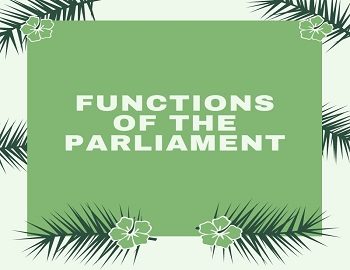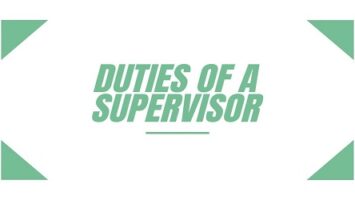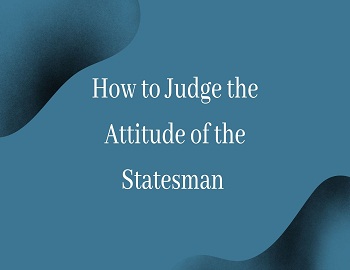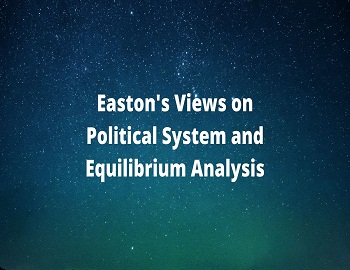Table of Contents
What is Responsibility?
The concept of responsibility denotes the obligation to carry out certain duties. Each official has definite responsibility for carrying out certain prescribed duties and functions. He enjoys authority for this purpose. He is also responsible for his failures or inaction. Anyone who gets authority also has to be responsible for the exercise of his authority. As such, the concept of responsibility is closely related to the concept of authority. In fact, it has an inseparable relationship with authority.
Responsibility means that every person in the organization is answerable for his actions to his immediate superior. Both in theory and practice, authority and responsibility must co-exist. A person who has authority without responsibility would remain unaccountable. The foremost criterion of good management is accountability. It is a well-known principle that if power is not to be abused, it must be accompanied by responsibility. Thus, the concept of responsibility is a guarantee against misuse of authority. Authority has to be exercised in a responsible way. In case of misuse of authority, the administrator is held responsible for his acts of commission as well as omission. He is responsible and accountable for his actions. As such, authority and responsibility always go hand in hand with each other.
Types of Responsibility:
Responsibility in the administrative process is of three types, which can be explained as under:
(1) Political Responsibility- Political Responsibility can be described as the most important form of democratic control on administration. In a parliamentary system of government, the responsibility of the political executive before the legislature acts as a controlling device for the functioning of administrative agencies and offices of every department. Each department works under a ministerial head, a cabinet minister, or a minister. The political head is ultimately responsible to the chief executive and directly to the legislature for the working of the administrative organizations under his change. To ensure that the political responsibility of the minister before the legislature gets no spanking or censure or punishment at the hands of the legislature, the official machinery has to cooperate in the implementation of the departmental policies and programmes, which are actually the policies and programmes of the government of the day and which stand approved by the legislature. The bureaucracy has to undertake and demonstrate that its work has been fruitful, purposeful, and productive and that it did not involve any laxity or mismanagement. In a presidential system, the legislature controls the administration and enforces its responsibility through several devices like investigation committees and budgetary control mechanisms. Legislative committees and special agencies which submit their reports to the legislature like the Auditor General and the Comptroller act as the instrument of legislative control over the administration. Legislative control is designed to enforce the responsibility of the administration.
(2) Institutional Responsibility- An administrative agency or institution has to be responsible and responsive to public opinion and welfare. Otherwise, it may become difficult for it to exist in the long run. Those organizations and institutions which become self-centered and work for themselves, ignoring the fact that they exist to serve the people, always face the problem of survival in the long run. Each organization has to undertake its work in a responsible way, otherwise, its existence can be jeopardized.
(3) Professional Responsibility- Today, a large number of specialists such as doctors, scientists, engineers, chartered accountants, cost accountants, MBAs, company secretaries, lawyers, academicians, and a host of other specialists and professionals are entering administrative services and public enterprises. As professionals, they have their ethos and codes of conduct, which they have to maintain in discharging their duties. This professional responsibility is more effectively enforced by the individual human consciousness and conscience of the administrative personnel themselves. They are in a position to decide what constitutes an ethically acceptable position to decide as to what constitutes ethically acceptable behavior and conduct in society. Trained professionals and experts act responsibly in the discharge of their administrative functions.
In contemporary times, several NGOs, people’s organizations, and rights groups like consumer forums also act as agencies of popular control over the administration. This has increased the responsibility of the authority holders towards the public.
Conclusion:
In an organization or the administration as a whole, both authority and responsibility are and should be, present in an equal proportion. A person who is charged with the responsibility of doing any given task has to be given authority commensurate with the task with the help of which he can carry out the assigned task effectively. In any organization, if the executive is responsible for undertaking a function, he should be clothed with the authority to recruit personnel and control the subordinates. Likewise, the grant of authority without responsibility can be highly dangerous for the health of the organization. It can ruin the system while delegating or granting authority. Responsibility has also to be assigned and enforced. As neither authority nor responsibility alone can be and should be vested in any official, both are and have to be simultaneously present.
According to Urwick, “To hold a group or an individual accountable for activities of any kind without assigning to them the necessary authority to discharge that responsibility is manifestly both unsatisfactory and inequitable. It is of great importance for the smooth working of any organization that at all levels, authority, and responsibility should be co-terminus and co-equal.”
Thus, authority and responsibility are integral parts of the process of administration. Both are present simultaneously and both act side by side.









Comments (No)